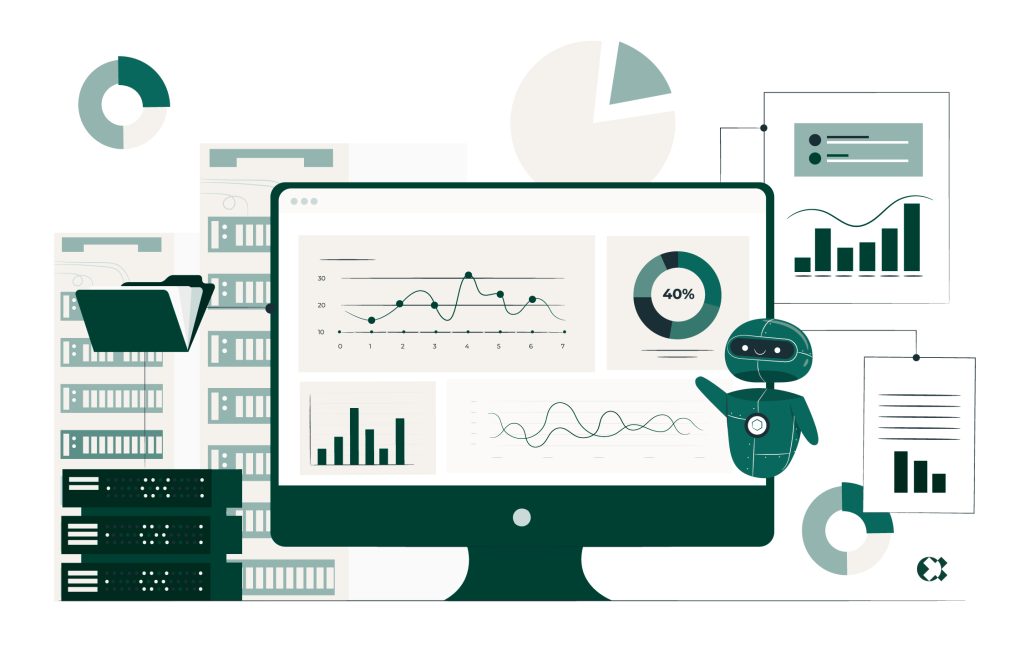A hyper-connected world leverages data as the lifeblood of digital marketing. For B2B companies, customer insights, behavioural patterns, and engagement data drive targeted campaigns and measurable results.
But with data comes responsibility—particularly around privacy. In Australia and across global markets, the regulatory landscape is shifting, with increased scrutiny on how businesses collect, store, and use personal information.
Failure to comply with privacy laws doesn’t just risk fines—it erodes trust and damages your brand reputation.
Let’s explore what B2B companies in Australia need to know about data privacy in digital marketing, from understanding compliance frameworks like the GDPR and the Australian Privacy Act, to applying privacy-first marketing strategies that protect both your customers and your business.
Why Data Privacy Matters in B2B Digital Marketing
Unlike B2C marketing, where customer engagement often focuses on large volumes of consumer data, B2B marketing typically targets smaller, more defined audiences. However, this doesn’t reduce the privacy risks. In fact, it magnifies them.
Collecting, storing, and using professional contact details, behavioural data, or tracking website activity requires compliance with strict digital marketing privacy laws.
Prioritising data privacy builds credibility with prospective clients who are increasingly cautious about how their information is handled. A single breach or misuse of data could result in significant reputational damage, especially in industries where confidentiality is critical.
Related: Why Brand Experience Matters More Than Ever in the Digital Age
The Legal Framework: What B2B Companies Must Understand
1. The Australian Privacy Act
The Australian Privacy Act 1988 governs how businesses handle personal information. For B2B marketers, this means ensuring transparency about what data is collected, how it’s stored, and the purpose of its use. Recent reforms are strengthening enforcement powers, with higher penalties for non-compliance.
2. GDPR and International Implications
Even if your business is based in Australia, you may engage with clients in Europe. The General Data Protection Regulation (GDPR) sets one of the world’s strictest standards for B2B data privacy compliance. It requires explicit consent for data collection, clear opt-out mechanisms, and strong security measures. Australian companies with global reach must adopt GDPR standards to stay competitive.
3. Cookie Compliance in B2B Marketing
Cookies track user behaviour and are essential in digital marketing. But regulations require businesses to obtain informed consent before placing non-essential cookies on devices. Cookie compliance for B2B companies is not just a European concern. Australian businesses are also expected to disclose how cookies are used and provide users with choices.
Risks of Ignoring Data Privacy in Marketing
Failure to comply with data protection in digital marketing doesn’t just risk penalties. It undermines the very relationships B2B companies work hard to build.
- Financial Penalties – Non-compliance can result in fines from regulators both in Australia and abroad.
- Loss of Trust – Clients are less likely to partner with a business that mishandles sensitive information.
- Reputational Damage – Privacy breaches make headlines quickly, impacting credibility in the market.
- Operational Disruption – Investigations and legal proceedings can halt business growth.
Privacy-First Marketing Strategies for B2B Companies
Compliance is non-negotiable, but the good news is that data privacy doesn’t have to stifle marketing innovation. Instead, it can drive better, more transparent engagement. Here are strategies to adopt:

1. Transparency in Data Collection
Always be upfront about what data you’re collecting and why. Provide clear privacy notices on your website, landing pages, and email forms.
2. Obtain Informed Consent
Don’t rely on pre-checked boxes or vague disclaimers. Use opt-in mechanisms that give users clear control over their data.
3. Prioritise First-Party Data
Rely less on third-party data brokers and invest in building direct relationships. Encourage newsletter sign-ups, gated content downloads, and event registrations that provide valuable first-party data.
4. Secure Data Storage
Ensure all personal and professional data collected is stored securely, with encryption and access controls in place.
5. Regular Compliance Audits
Conduct regular reviews of your marketing systems to ensure they align with B2B data privacy compliance standards.
6. Build Privacy into the Customer Experience
A privacy-first approach should be integrated into your customer journey. This not only ensures compliance but also builds long-term loyalty.
Related: Performance Tracking Demystified: What Marketers Should ACTUALLY Measure
How Privacy Shapes the Future of B2B Marketing
The days of unchecked data collection are over. For B2B companies, privacy-first strategies are now a competitive advantage. Businesses that demonstrate respect for client data position themselves as trustworthy, reliable partners.
Moreover, as technologies like AI and predictive analytics reshape digital marketing, data protection in digital marketing becomes more critical than ever.

Emerging trends include:
- Privacy-first personalisation – Delivering tailored experiences without excessive data collection.
- Contextual targeting – Using real-time content and environment cues instead of invasive tracking.
- Zero-party data strategies – Encouraging clients to willingly share preferences and needs.
Final Thoughts: Protecting Data, Building Trust
Data privacy is not just a compliance box to tick. It’s central to effective, ethical, and sustainable digital marketing.
For B2B companies in Australia, navigating digital marketing privacy laws, understanding the Australian Privacy Act, and adopting GDPR B2B marketing practices are critical steps toward future-proofing your business.
At one x, we believe privacy-first marketing strategies don’t just protect your brand. They strengthen it. By aligning compliance with customer experience, B2B companies can turn data protection into a competitive edge.
Ready to align your marketing with data privacy best practices?
Book a FREE Consult with our customer experience experts at one x and discover how we can help you balance compliance, trust, and growth.




